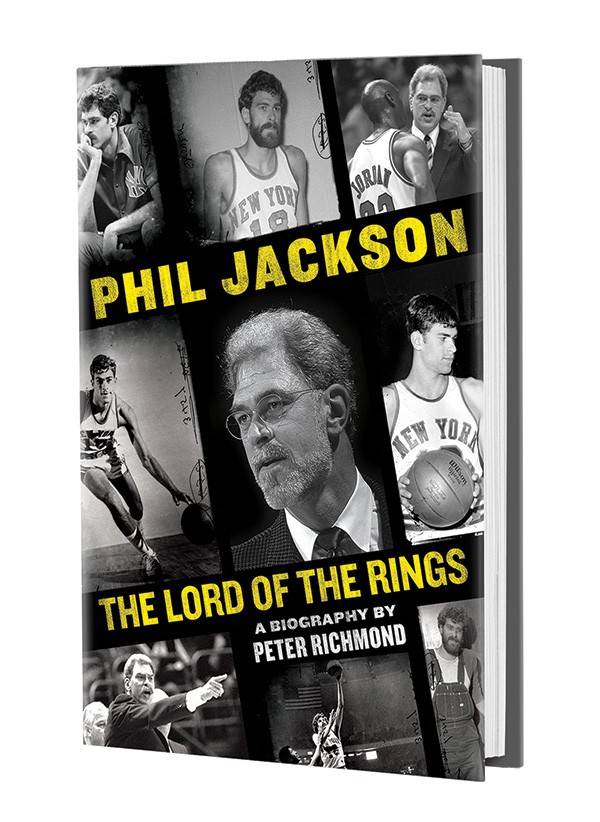Peter Richmond will give a talk and sign copies of Phil Jackson: Lord of the Rings at Oblong Books & Music in Millerton on January 18 at 6pm. (518) 789-3797.
Why a book on Phil Jackson?
As he acquired all those rings and he was getting near the record, I said to my agent, "This is really bizarre. The history of sports has never had a 'Phil Jackson.' A guy who's read every philosopher and spiritualist, from P. D. Ouspensky to Nietzche; a guy who's studied Buddhism and Native American spirituality with the Lakota Sioux, Christianity, and Pentecostalism. He was into weed and LSD when he was a player, and now he's possibly going to be the winningest coach ever. We should really think about this." I wanted to write it partly to be instructive. If this guy wasn't Vince Lombardi, Pat Riley, or name-your-hard-assed coach—he's the opposite—then maybe people would start thinking of professional sports coaching in a new paradigm.
When did you first get a sense that Phil Jackson was substantively different from other coaches?
In his first year as coach of the Bulls, I did a long magazine feature on him, and it included going to Woodstock to talk to his friends. His friends were extremely kind but also very protective of him, in a way that you would want your friends to be protective of you with the press. And it struck me after those interviews that Jackson was something different, that his strategies had more to do with how he dealt with people every day, which was different from all of the coaches I had interviewed in a long sportswriting career.
Different how? What's the default setting for most coaches?
A guy who somewhere in his college athletic career realizes that his future will be in coaching. He goes to coaching seminars held by the big coaches, he studies his craft, he then schmoozes and gets an entry-level job with a professional team, and works his way up to his career pinnacle when he gets a head coaching job. Phil did the opposite. Phil followed Phil. It wasn't until [Bulls GM] Jerry Krause found him. Krause said, "You're too smart, you treat your players so well that they go to the end of the world for you in this minor league. Come to my team."
Krause brings him to Chicago from Albany in '85. Phil shows up wearing a straw hat with a macaw feather and a beard and long hair and spends the entire interview explaining the mystical significance of the macaw feather to then-coach Stan Albeck. Needless to say, he doesn't get the job. Two years later, Krause calls Phil and asks him to come back to interview with a new coach, but tells Phil to wear a suit and cut his hair. He did, he got hired, and two years later, he was the head coach of the Bulls.
You didn't interview Jackson for the book.
You can write better books when the subjects are not there to tell you about themselves. It helped that I didn't talk to Phil. If you're writing about somebody, and you see any aspect of what they do through their own personal lens, it's automatically a cracked lens. If you have 350, 400 pages to surround a subject, then that's as authentic a story as you can deliver. If I had to do it over and somebody said, "You can have Phil," I still wouldn't want to talk to him. Not having Phil caused me to seek out people from fringe universes and seeing him in a much more objective light than people close to him and ultimately him himself.
You end your book on the note that Jackson is essentially an enigma. Given his essential unknowability, how do you most succinctly describe him?
By thinking outside of the sports box, and by treating his players as people first and athletes he works with second, not as product but as fellow human beings, he was able to set a completely new set of rules which turned out to dwarf, in quantitative success, every other coach in history. No American coach ever won 11 championship rings, and he did it by thinking counterintuitively to the stilted old thought.
Charley Rosen, his friend of 35 years, said to me, "Look, don't think you're going to get to this guy, I don't know who he is." Nobody knows Phil. Phil may not know Phil. But I know that he's at least comfortable with himself as a person—which I think is the number one requirement for happiness on Earth. He knows who he is.















